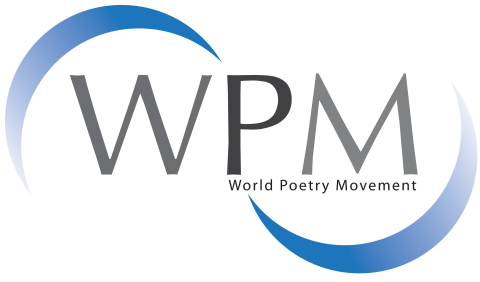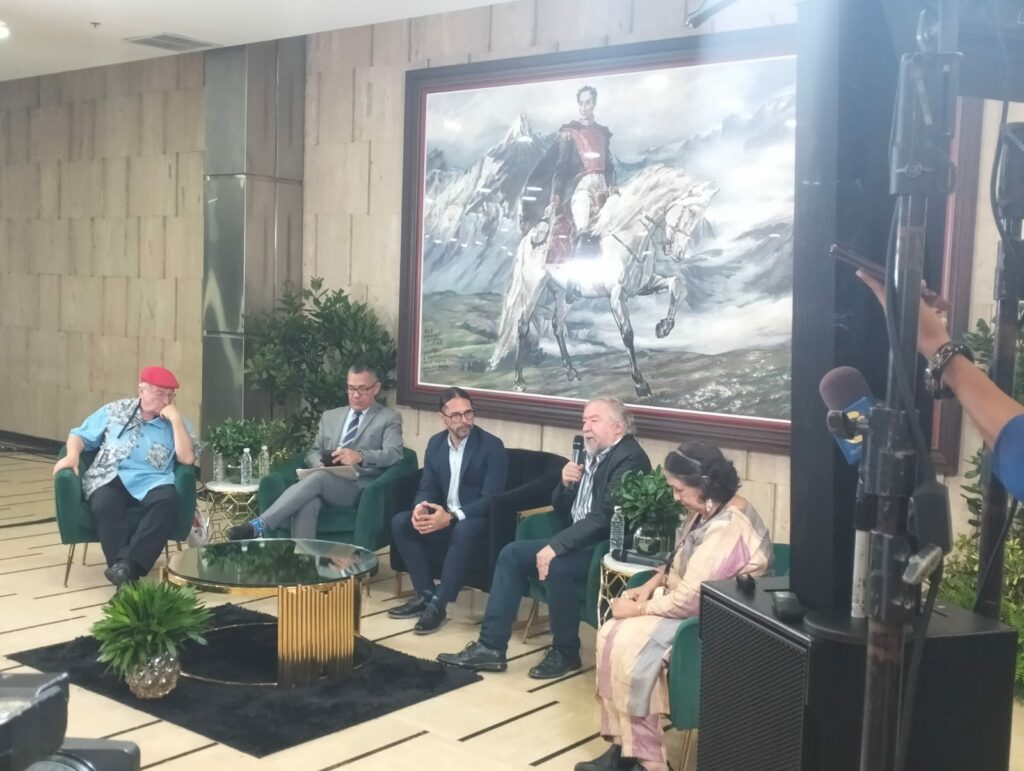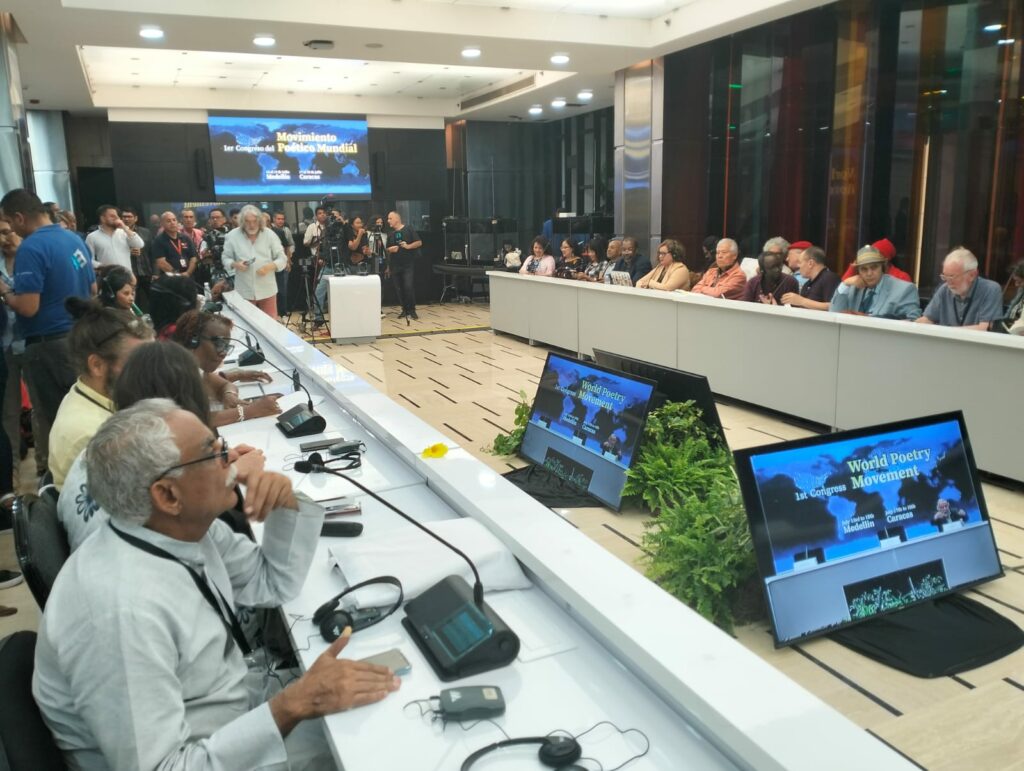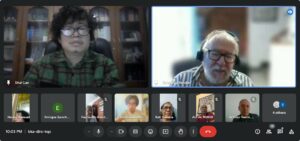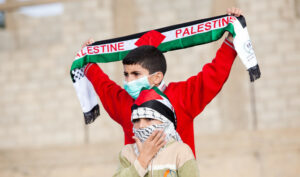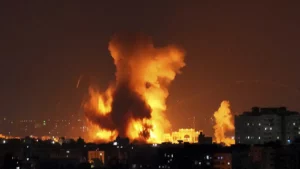Place: Caracas, Venezuela.
Time: 10:00 am to 12m
Freddy Ñánez (Bolivarian Republic of Venezuela)
Greets and mentions the First WPM Congress that began in Medellin, and now continues in Caracas. Gives continuity to the Congress, pointing out the fact of continuing building what started in Medellin regarding the Strategic Plan. He transmits a welcoming hug from President Nicolás Maduro, who also provides all the support to have the best conditions for the festival. “They came to a country where political leaders read poetry, and some even believe they are poets, in a country in revolution. Within the constitution there are laws adjusted to the highest ideals, in the prose some turns of beauty that speak to us of utopia.” He gives way to the Venezuelan Minister of Culture, Ernesto Villegas.
Ernesto Villegas (Bolivarian Republic of Venezuela)
He reads a poem by his father, dedicated to death.
The public agenda is opening up to poetry, to life, to peace, it is possible because the people of Venezuela have earned it.
The story of war, death and destruction is changing, because the people in the streets stopped the civil war. Venezuela is a poet people, it deserves all the applause.
It defeated fascism in the streets. It defeated the collateral measures, generating social wounds that have not extinguished poetry. Poets will accompany this people and their testimonies, and their struggles.
“Be welcome to our realities, not to that of an inert country, but to a living country, with living cultural dynamics, with morals and dignity intact. Looking ahead to all the peoples of the world.”
Ana María Oviedo (Bolivarian Republic of Venezuela)
She welcomes the participants and reports on the actions taken in Medellin to implement the Strategic Plan. She requests not to repeat what has already been agreed in Medellin, and to make the day productive. Afterwards, there will be a commission that will define the lines of action. And each country will do it in strategic actions, and fulfill what each country commits to according to its possibilities. He requests the contributions that have not yet been made, and to conclude with the approval of the six lines of work and the Strategic Plan in general.
First strategic line:
Poetic actions. Reads this line. Requests the use of the floor for only four minutes per person.
Freddy Ñánez (Bolivarian Republic of Venezuela)
The emergence of an entity that would give the movement a strategy: Migration from death to life, unifying the purpose and giving a common motto that outlines the ethics of the WPM. To orient in the matter of poetic actions.
Francis Combes (France)
With respect to this point, he proposes to develop a world without walls, that at the end of the Congress there be a resolution in which there is a federative theme to be proposed to all the friends of the world.
First, to take a stand against all wars, and to bet on human dignity. Also to live in peace with the planet. To seek harmony, to combine the political problem of war with the ecological issue.
Fernando Rendón (Colombia)
He proposes the reading of the six lines of action as a whole and then the intervention of each one.
Freddy Ñánez (Bolivarian Republic of Venezuela)
He proposes reading the six points and agreeing on what needs to be discussed, and arriving at a final wording.
Anna Lombardo (Italia)
She considers it important to understand what the steps of the general plan are. He suggests ethical issues that can be a central theme in WPM, such as the indifference that affects human beings in the face of all social problems.
Rati Saxena (India)
She proposes to read the lines and make the decisions. Then the differences with processes will be refined in a more concrete way.
Luis Filipe Sarmento (Portugal)
Each country has its own characteristics, and there are different poetic actions.
He proposes to recover the humanism of the 60’s towards peace and not war. To make known in every street plaques with poems, and with the symbol of the WPM.
Yvonne Weeks (Montserrat)
She proposes that each one prepare a report for their communities and that it be published by the media. In this way, what happened at the Congress will be disseminated and people will get to know the work. Interconnect the poetry festivals of the world.
To have a very clear commitment to report on the results of this Congress.
Oscar Saavedra (Chile)
He proposes that each delegate should organize, capture people who are doing activities, generate instances, and close distances, include all sexual diversities.
Ali Almeri (Jordan-Palestine)
He requests not to waste time on repetitions. Agreements have already been reached mainly on women, environment, freedom. Everything is already in the Plan.
Ana María Oviedo (Bolivarian Republic of Venezuela)
She says that everything is contained in the plan. Then each country has contributed with particular characteristics. He asked for a vote on the first strategic line.
All attendees vote in favor of the first strategic line.
Fernando Rendón (Colombia)
He expresses that, from his understanding, the Strategic Plan has been approved in full and without discussion. He mentions that the highest authority is the Congress, above all, decisions must be made with full conscience. He requests to act in harmony, in agreement and with full conscience with this plan. Expresses that the Plan will be applied in each country to the extent of the possibilities and adaptations, establishing priorities. The world school of poetry is urgent in each country. It is necessary to act hand in hand with progressive governments, such as Venezuela’s, with friendly governments, and to obtain unprecedented support.
He also thanked the television channels that have made the Congress possible.
He proposes to work with agreements and with responsibility in the change of direction. People must leave and people must enter based on criteria. It will be done in harmony, with wisdom, elegance and patience. In search of the supreme welfare.
Freddy Ñánez (Bolivarian Republic of Venezuela)
Since the Plan has already been discussed, he proposes to vote for the structure to carry out what has been planned. The organizational structure is the one that will link us and give us visibility.
He proposes to reflect on how to replicate the world school of poetry in each country.
Vadim Terekhin (Russia)
He proposes to take decisions to the governmental level. The officials of these countries will relate with a different attitude. He proposes to Freddy Ñáñez that the government of Venezuela sign a letter, as an official document. The organizing committee can make decisions, but with the participation of all.
Alex Pausides (Cuba)
He talks about the School of Poetry and the different ways of approaching it. He expresses how the poet can explain to the children of the communities what poetry is for, what reading is for, what information is for. He proposes that everyone should create the school of poetry from the smallest, virtual or face-to-face.
Mónica Lucía Suárez (Colombia)
She proposes that the methodology be translated into actions. Two or three general actions should emerge that can be developed and that can be carried out in each country. That the commitment be a short, medium or long term chronogram, how many or what type of actions will be developed. That at the end of each line there be concrete lines to accompany it.
Khalid Raissouni (Morocco)
He proposes not to touch details that could harm WPM. He asks to respect opinions and referential cultural differences.
Ana María Oviedo (Bolivarian Republic of Venezuela)
She emphasizes what unites and not what disunites. She expresses that respect is the basics in WPM. She announces that he will not give any more right to speak, to proceed with the approval of point number two. The second strategic line is the creation of the poetry school.
All attendees vote in favor of the first strategic line.
Ana María Oviedo (Bolivarian Republic of Venezuela)
The third strategic line is the publishing project.
Ayo Ayoola Amale (Ghana)
She expresses that poetry is beauty and truth. One should not be afraid to tell it like it is. Diversity must be taken care of.
Altynai Temirova (Kirgizstan)
She proposes to strengthen translations in each country, to enable development. She proposes to work poetry among young people. The school of poetry, which will be a lake that suits everyone and will allow the worldwide development of poetry.
Agneta Falk (Sweden)
She proposes to address the limitations of language in translations. Translation workshops that are also important for poetry.
Hanan Awwad (Palestine)
She reaffirms the power of the world to come and create something. She proposes that all accept and approve the Plan before any future action. She speaks out against oppression and colonization in any form. Proposes a long-term plan and an emergency plan. Pay attention to areas of conflict, and protect the dignity of writers wherever they are.
Bárbara Poganik (Slovenia)
She expresses that the poetry project is one of the best ideas of the Congress, each country with its possibilities. It shows that in Europe nothing works without bureaucracy. A structure must be generated as in other countries, to show the background on which work can be done. The same for the publishing movement. Poetry is a powerful language that speaks of truth. There is a lack of awareness of reality, about how colonial histories feel, this is something that must be presented from an individual voice, from the voice of poetry. After the publishing project has been established, there should be a fund of poems to sensitize children to world problems.
Imdad Akash (Pakistan)
The school of poetry is aimed at raising awareness in the masses. There are countries that suffer embargoes and political attacks, receive bans, this has to end. If you can’t talk about Palestine, Ukraine, and Sudan, if you can’t talk about everything, then you are not becoming aware of the real situation that is happening in the world. Authoritarian governments do not support culture, so no government help is expected. Support the creation of the letter on behalf of the WPM.
Oumar Faruk Sesay (Sierra Leona)
Regarding the school of poetry. Everyone has their own specific details. He recommends accepting the Strategic Plan, and then everyone puts their own regional accent.
Fernando Rendón (Colombia)
He affirms that the plan has been sent several times to everyone and 20 days ago it was sent again to all delegates before the beginning of the congress. It was everyone’s responsibility to have read it, and it has already been published many times. Let’s approve the whole plan, and if any of you want to make a reservation it can be reconsidered. He invites the approval of the plan.
Óscar Saavedra (Chile)
He draws attention to the fact that the document should have been read by the attendees beforehand, since it is vital to know the Strategic Plan in order to be able to vote on it.
Ana María Oviedo (Bolivarian Republic of Venezuela)
She asks the full congress to approve the strategic plan, with its six lines of action:
– Poetic actions
– Pedagogical project (Poetry School)
– Publishing project
– Organizational and management processes
– Communications
– Defense of human rights and all forms of life
All attendees The plan is approved by the full Congress UNANIMOUSLY.
Freddy Ñánez (Bolivarian Republic of Venezuela)
He invites to vote, without sacrificing the quality of the Congress for pragmatism. He agrees to approve the plan as a whole, and then add and qualify, and object to some point.
All attendees The plan is approved by the full Congress UNANIMOUSLY.
Fernando Rendón (Colombia)
He proposes that each member of the operating committee lead a line of work and direct it at the continental level.
He thinks that the creation of the WPM Arabic committee is a good initiative. African poets in Europe, join together to help the translation of African books in Europe. There are 50 poets already organized in the Caribbean. Natural ways that emerge. That is why those who are going to propose is to work every day to develop a powerful and real movement with a massive presence of poets, artists, academics, fighters, to form a global humanist front to propose changes.
Nicolás Antonioli (Argentina)
Reinforcing the concept of not extending the debates, the idea of being able to prepare in each delegation a technical report on the internal difficulties of each country, so that the general committee can evaluate it and generate solutions. After the congress, a virtual meeting will be held to discuss these issues in greater depth.
Tarek Eltayeb (Sudán)
He expresses that in the first place he sees that this Congress is discussing a little bit the themes of the congress that gathers a great part of poets that were in Medellin. He proposes to translate the final document of the congress into Arabic. Also the poetry to make it known to the world.
Ayo Ayoola Amale (Ghana)
She proposes that a timeline be established for the development of the plan.
Achour Fenni (Algeria)
He is grateful for the translation of the Strategic Plan into Arabic. Proposes to address issues such as: cultural diversity, the defense of nature, sustainability and the social commitment of the movement itself. Adding that of peace. It proposes to reflect on the peoples who still seek their rights.
Another point is a value is to integrate, to fight against the current hegemony that imposes values. Another point would be to talk about the action plan of each country.
Enrique Sánchez Hernani (Peru)
He expresses his support for the Plan and the idea of forming the commission that will converge the realization of the additions to the Plan. It can be presented in fewer pages in a visual way, to make it known. To have an executive version of the Plan.
Nese Yasin (Cyprus)
As for global projects, the suggestion of having a poetry school, they need funding. For that you need to have the support of progressive governments. You should have a poster, a venue, audio. Pay attention to areas of conflict, and protect the dignity of writers wherever they are. Assume that there is another country with similar problems, we should have an economic subsidy, if I think about the poetry school, you don’t need a building, it can be a mobile strategy for the development of the projects. As each country has its own difficulties. Partnership can be an option or with local authorities.
Maribel Mora (Mapuche) and Rosa Chávez (Maya)
They propose a change and a proposal. They propose that the theme of indigenous peoples be made more representative, taking into account human rights. Create a group of indigenous poets to strengthen this part of the movement.
Keshab Sigdel (Nepal)
El agradece por la oportunidad de incluir sus propuestas. Propone que en las reuniones virtuales se puedan hacer revisiones del documento. Delegar poder al comité que se elegirá mañana, para que decida sobre el producto final del Plan y que el Congreso decida sobre la estructura de la Escuela de poesía. Si podemos combinar la parte pedagógica con la de edición, puede funcionar mejor. Se tiene la propuesta de 22 miembros para el Comité coordinador general, cinco continentes, con cinco representantes, Asia, América, Oceanía 2, son 23, cinco elegidos por cada continente.
Sandor Halmosi (Hungary)
He believes that translations are a very important point. He agrees with giving positive messages. Poetry is equal to synthesis. Avoid extremism, violence. Extremes should be eliminated. One must be poetically correct. Translate, write, and read, the world will be better.
Claus Ankersen (Denmark)
Images are needed in which we bring the movement together. Strengthen the ability to recognize each other for the realization of poetry on a global level. Strengthen the community of poet at the local and regional level. As it is done here. Also propose to meet informally and make creative collaborations, and the strategic plan will take a real form.
Freddy Ñánez (Bolivarian Republic of Venezuela)
He congratulates the Congress for the approval of the Strategic Plan, which has been consensual, debated, taking into account the different experiences and options of all. Paying attention to the areas of conflict, and protecting the dignity of writers wherever they may be. On behalf of President Nicolás Maduro. Thank you all for choosing to come to Venezuela. You will meet a country that is in the streets, that generates social processes so that violence will never again take over what belongs to the word. A country that has been formed from the difficulties, it is a country that resists, that loves, that believes and that opens the doors to integration.
